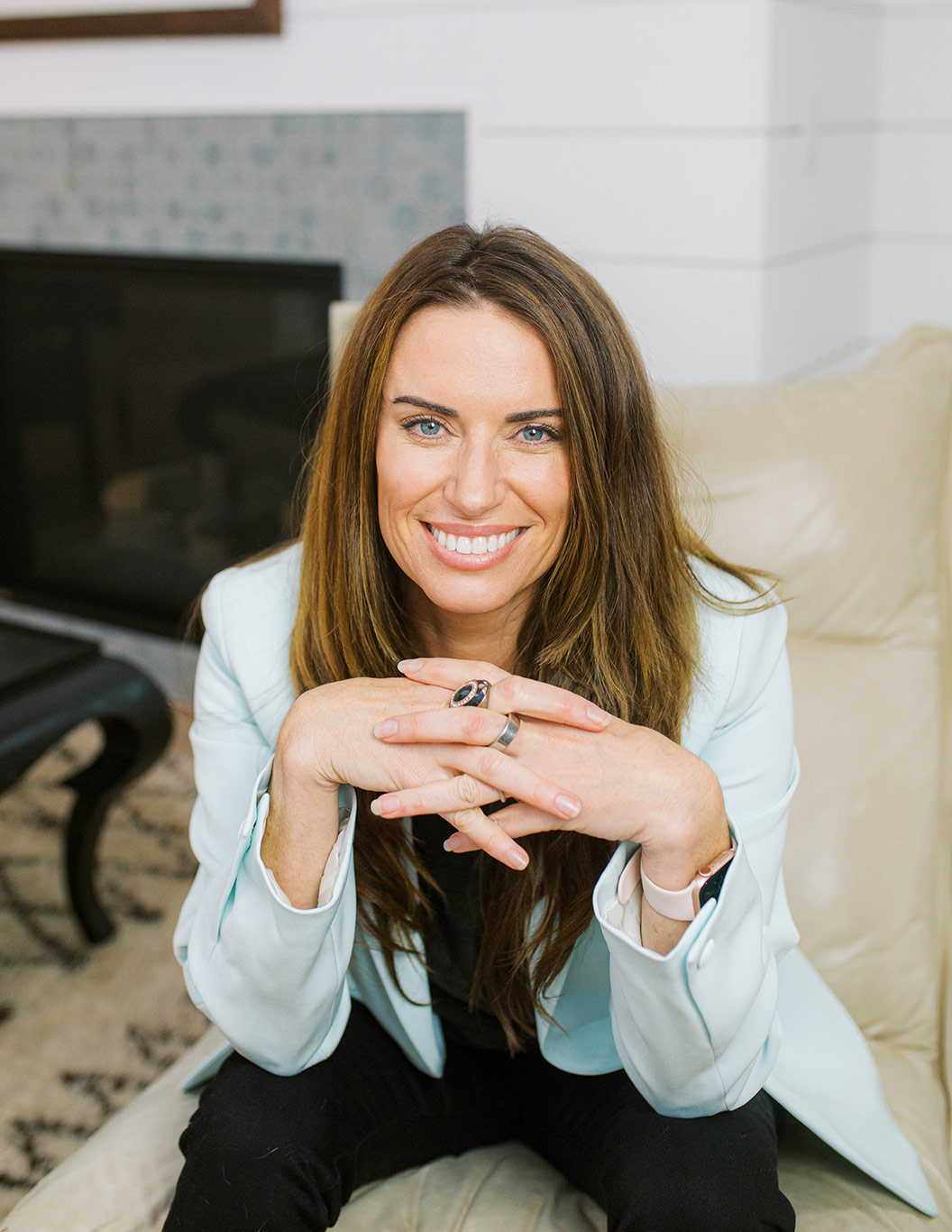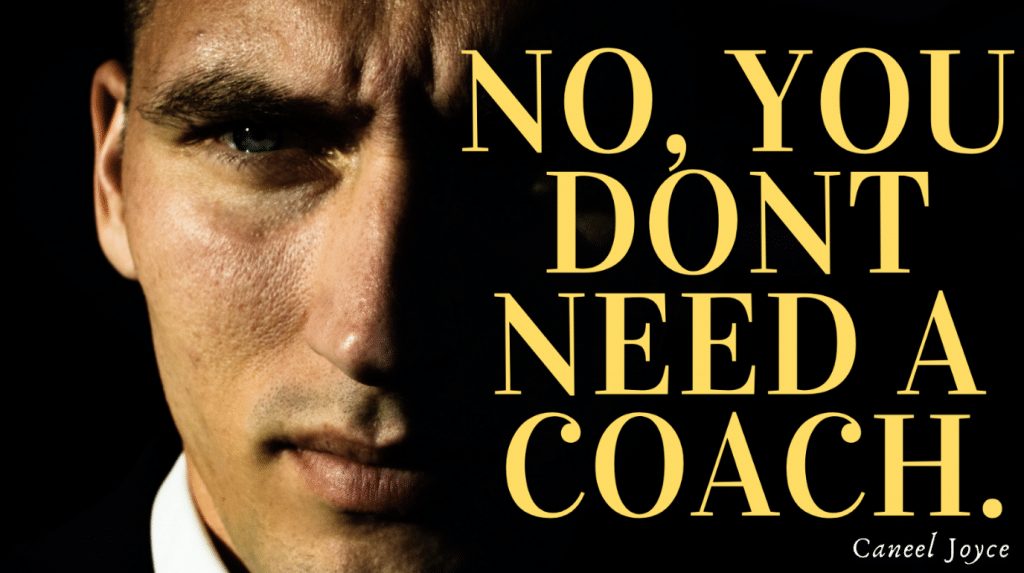
I'm a social scientist who helps people break out of the invisible traps and make whole-life changes easily and naturally.
Do you need a coach? Or does your cofounder? Your husband? Your direct report? That guy from your YC class?
How do you know who needs one? What would happen if you didn’t get one?
I’ve got an opinion on this. No, you do not need a coach.
Maybe you’ve been part of a conversation like this one, like many I’ve OH on Caltrain:
Startup founder: “So I’ve got this manager, and every day it’s a new problem with him. I keep telling him how to manage his team and he just doesn’t get it. If we lose another engineer under him I don’t know what I’m going to do.”
Startup founder’s friend: “He needs a coach.”
Okay, stop it right there.
Let’s get honest.
No one NEEDS a coach.
NOBODY!
Now…. you might want a coach. Or you might want someone else to have a coach. But “need” is a strong word and one that is hardly ever true. It’s not objectively true that you “need” something. Need is not a terribly useful concept when it comes to something as delicate and complex as a human being.
Coaching is not a silver bullet. It can be a huge investment of money, time, and energy. Great coaching is amazing, and I’m the first to testify about that! But it’s not water, it’s not sleep, it’s not exercise or hugs or food. It’s a powerful element to add to a leader’s life, but even if your company implodes under your watch….
EVERYTHING WILL BE JUST FINE.
The sun will keep rising and setting. The earth will keep spinning. Yes, your family may struggle to make ends meet, but you’ll get clever and creative about providing for yourselves, and either grow closer or end the relationship in the process. As my own coach says, “The good news is, you can’t fuck it up. Either way, you’ll learn.”
COACH OR NO COACH, ALL WILL BE WELL.
Might a coach help a struggling manager find his footing and be more effective? Maybe, if the manager is interested in growing in his self-awareness and open to changing his behavior to get different results.
But if he’s not interested in working with a coach….. then all you can do is to invite him into exploration. (Most people don’t respond well to lines in the sand when it comes to vulnerability and self-examination, so encourage but give space and do your best to trust the process.)
And if you mention coaching, and explain why you think it’s helpful for most leaders (managing people or not), and maybe it would helpful for him, and you even share your own positive experiences being coached (and maybe even get vulnerable too), and he still doesn’t bite?
Get over it. Consider the possibility that it’s you who wants a coach or that it’s just not the right time.
Today, he’s not interested. He’s not willing.
And in coaching, as in all of life, willingness is everything.
I’ve coached countless founders, executives, leaders, and managers since I pivoted out of leading startups and into supporting them as a coach.
People often ask me, “Who are your clients?”
My answer is, “I coach the willing.”
When a VC calls me and says “I’ve got this founder and she needs coaching. Can you help?” I usually say “Possibly. Does she want a coach?”
Then in my initial conversation with the founder, I’ll ask about why she wanted to meet. If I discover that she is taking the meeting because her board wants her to be coached, I do all I can to help her get clear first on what she really wants to do. Is she willing to play? Is she willing to learn? Is she willing to look at things from fresh perspectives?
If she answers only with her head (such as “I read that every great CEO has a coach” or “I’m sure I’m not perfect and I have a lot to learn”) then I ask her to check with her gut. Is there anything in there at all that stands between her and coaching?
If she finds any resistance, I ask her to trust that. I tell her that I trust it, and that I want to learn all we can from that resistance. Is there a twinge of guilt for spending money on her own growth and development? Does she feel like having a coach means there is something wrong with her? Did she have a bad experience with a coach before? Is she afraid it’s going to be a waste of time? Any of these is a perfectly good reason not to work with a coach at all, let alone me.
It could also be something about me or the way we fit together that doesn’t work for her. Maybe I remind her of her sister. Maybe her coworker thinks transformational executive coaching is woo-woo and/or too indulgent. Maybe I’m too expensive. Maybe my style just doesn’t appeal to her for a million possible reasons. I don’t need to take any of that personally, it’s just information, and in that meeting, just like in a coaching session, my job is to help my client (in this case, just a prospective one) get clear.
One by one, we will explore the many reasons her body is saying “no” to coaching. Sometimes that releases the fear and she finds herself moving toward an intelligent and conscious choice to receive coaching. Other times, we find out that the meeting can end — she’s going to resolve the disconnect between herself and her board, her cofounder, her sister, her team, or (most likely) herself.
I might hear from her again in six months. Or 3 years. Awesome! A lot of my favorite clients have gone through a similar process. If I have space, I’ll work with them happily, knowing they made a conscious choice to begin a thrilling and sometimes challenging journey.
By unearthing the wisdom in our resistance, we find willingness.
Basically, if you find a NO, trust the NO. Trust it enough to explore it. (Same for a YES… If we’re struggling to decide, we usually have both.)
See where that exploration takes you. (Panicked because this exploration is taking too long? It really doesn’t take more than a few minutes if we’re not resisting the exploration by focusing on how little time we have.)
Usually exploring our own resistance will help us find a clean decision that we can make in full awareness and consciousness. This itself is the beginning of the work.
Let’s review. Hear the no in your head. Find the no in your body. Drop in. Ask “why are you here, no?”
It’s called Gut Instinct. Horse Sense. Street Smarts. Body Intelligence.
And that’s the core of what we call Leadership.
Nothing woo woo about that.
xo,


